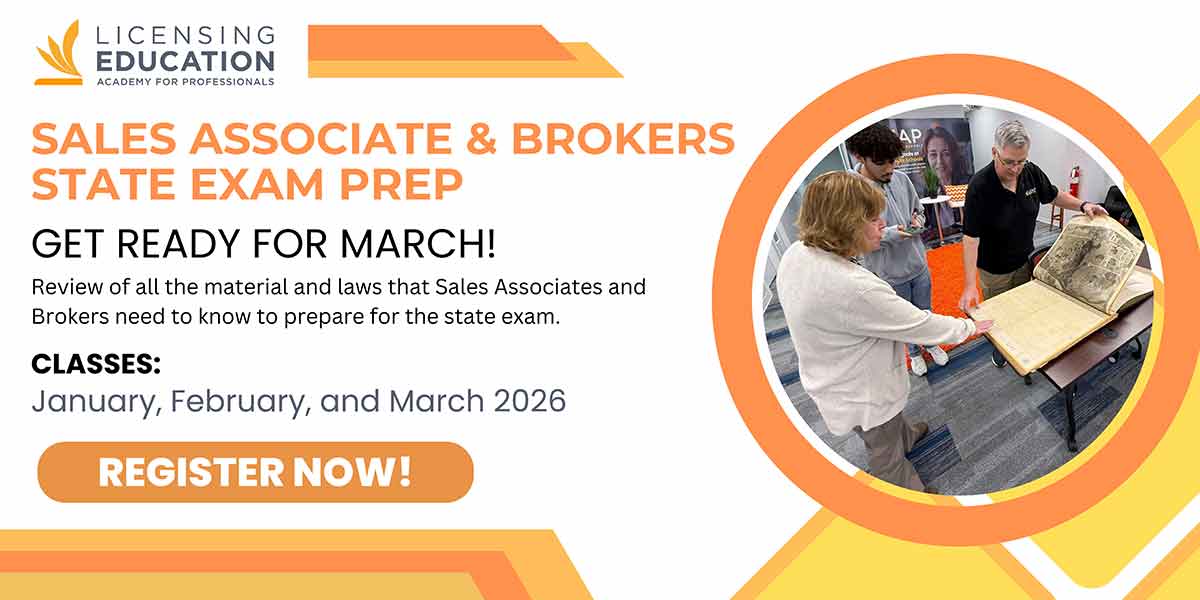Becoming a successful mortgage loan officer requires a unique blend of skills. These range from strong communication abilities to analytical thinking.
In the competitive real estate market of Orlando, FL, these skills are even more crucial. They can set you apart in the industry and help you thrive.
This article will delve into the essential skills for mortgage loan officers. The guide will also provide information on the necessary training, education, and certification required to excel in this role.
We’ll highlight the importance of continuous learning and professional development. Platforms like LEAP Academy can be instrumental in this regard.
Whether you’re considering a career as a mortgage loan officer or looking to enhance your skills, this guide is for you. Let’s embark on this journey to professional growth and success in the mortgage lending industry.
The Role of a Mortgage Loan Officer
Mortgage loan officers play a key role in the home buying process. They assist clients in securing the financing needed to purchase a home.
Their tasks include evaluating client financials to determine loan eligibility. This requires a deep understanding of complex loan products and procedures.
Another critical responsibility is advising clients on suitable mortgage options. Loan officers must clearly explain terms and conditions.
They also handle the application process, from starting to finishing. Ensuring compliance with regulations and coordinating with other professionals is part of their daily work.
View this post on Instagram
Key Skills for Success in Mortgage Lending
Mortgage loan officers require a diverse skill set to excel. These skills enable them to serve their clients effectively. From communication to technical prowess, each skill plays a crucial role.
First and foremost, strong communication abilities are indispensable. Loan officers need to convey complex information in simple terms. This helps clients make informed decisions confidently.
Additionally, analytical thinking and financial acumen are fundamental. Officers analyze financial documents and assess risk. This ensures that lenders make appropriate lending decisions.
One must not overlook sales and marketing skills. Loan officers often promote their services to potential clients. This involves networking and creating compelling presentations.
Time management and organizational capabilities are also vital. Officers juggle multiple applications and ensure they meet deadlines.
Here’s a breakdown of essential skills:
- Communication
- Customer Service
- Analytical Thinking
- Financial Acumen
- Sales and Marketing
- Time Management
- Organization
- Adaptability
Each of these skills contributes to a successful career in mortgage lending.
Strong Communication and Customer Service
Clear communication is pivotal in mortgage lending. Officers must explain loan terms and answer client questions. Effective communication builds trust and rapport.
Excellent customer service is equally important. Clients appreciate officers who address their concerns promptly. This leads to higher satisfaction and referrals.
Loan officers who are good listeners better understand client needs. They can then tailor their services accordingly. This personalization enhances the client experience.
Client feedback is also valuable. Loan officers can improve their service by actively seeking and acting on feedback.
Analytical Thinking and Financial Acumen
Analytical thinking is crucial for evaluating financial data. Loan officers must assess client financial health. This involves analyzing credit scores, income, and debts.
A strong grasp of financial acumen helps in risk assessment. Officers determine the loan terms that align with a client’s situation. This minimizes potential losses for lending institutions.
Loan officers need to stay informed about market trends. Understanding economic indicators can inform lending decisions.
Regular training and learning keep these skills sharp. Online courses and financial workshops can be beneficial.
Sales and Marketing Abilities
Loan officers often need to market their services. Sales abilities help in attracting and retaining clients. This involves effective promotion of loan products.
Officers develop marketing strategies to reach potential clients. They might leverage social media and other digital platforms.
Networking is an essential part of marketing in this field. Building relationships with real estate agents and clients extends reach.
Effective salesmanship involves understanding client needs. Loan officers tailor their pitches accordingly.
Time Management and Organizational Skills
Efficient time management is crucial in mortgage lending. Officers handle several applications at once. They must prioritize tasks to meet deadlines.
Organizational skills ensure smooth processing of loans. Keeping track of documents is key to success.
Multitasking is often necessary in this fast-paced industry. Officers must balance administrative duties with client interactions.
Adapting to schedule changes is also important. Officers need flexibility to manage unexpected demands.
Mortgage Loan Officer Training and Education
Proper training and education lay the foundation for a successful mortgage loan officer career. The process involves learning about various aspects of mortgage lending. This comprehensive education often begins with formal courses.
Many educational programs cover real estate finance and loan underwriting. Regulatory compliance is also a critical topic. Understanding these areas ensures officers can navigate the complex lending landscape.
Practical training is equally important. Simulation exercises offer hands-on experience. These scenarios prepare loan officers for real-world challenges.
In Orlando, FL, the demand for skilled loan officers is high. Education opportunities in this area are plentiful, catering to the growing market. Institutions like LEAP Academy offer targeted training.
Here’s what a comprehensive mortgage loan officer program might include:
- Real estate finance
- Loan underwriting
- Regulatory compliance
- Practical simulations
- Market trends
- Customer service strategies
These elements prepare loan officers for the multifaceted challenges of their roles.
Loan Officer Certification and Licensing
Certification and licensing add credibility to a loan officer’s profile. They demonstrate a commitment to professionalism. Certifications enhance job prospects and potential earnings.
Loan officers in Orlando, FL, must obtain a license through the Nationwide Mortgage Licensing System (NMLS). This involves passing exams that test knowledge and skills.
Certifications such as the Certified Mortgage Banker (CMB) are highly regarded. They require rigorous preparation but offer significant benefits.
Licensing ensures compliance with federal and state regulations. It protects both the lender and the client.
Importance of Continuing Education
Continuing education is vital in this ever-evolving field. It helps loan officers stay updated on industry changes. This ongoing learning keeps skills sharp and relevant.
New mortgage laws and products frequently emerge. Education allows officers to adapt quickly. This ensures they can offer the best options to clients.
Professional development courses and workshops are valuable. Institutions like LEAP Academy provide these resources.
Staying competitive means embracing lifelong learning. Essential for growth and success in mortgage lending.
View this post on Instagram
LEAP Academy and Professional Development
LEAP Academy stands out in advancing mortgage loan officer skills. It offers specialized programs tailored to industry trends. Professionals gain access to a wealth of resources.
The academy’s curriculum addresses both theoretical knowledge and practical skills. This comprehensive approach enhances on-the-job performance. We continually update course offerings to align with market needs.
Networking opportunities through LEAP Academy are abundant. Engaging with peers and mentors fosters valuable industry connections. This interaction is crucial for career growth and development.
Continual professional development is the key to success. LEAP Academy empowers mortgage loan officers to achieve their full potential. Enrolling in such programs is a strategic career move.
Networking and Industry Engagement
Building a strong network is vital for mortgage loan officers. Networking helps in exchanging ideas and learning from peers. It also opens doors to career opportunities.
Industry engagement enriches your understanding of market dynamics. Participating in seminars and conferences keeps you informed. You gain insights into emerging trends and best practices.
Joining professional associations enhances your industry presence. These platforms offer resources and support. Active involvement demonstrates commitment to your profession.
Establishing relationships with real estate agents and clients is crucial. It builds trust and opens channels for referrals. Consistent engagement strengthens your professional reputation.
Technology Proficiency and Digital Processes
In today’s digital age, technology proficiency is crucial for loan officers. They need to handle various software tools. These tools streamline the mortgage process.
Digital processes offer more efficiency and accuracy. Loan officers use these to manage applications. This reduces errors and improves client satisfaction.
Being tech-savvy gives loan officers a competitive edge. It enhances their ability to serve tech-aware clients. Staying updated with digital trends is essential.
Understanding online platforms can expand a loan officer’s reach. These platforms help in marketing services effectively. They also facilitate better client communication.
Ethical Practices and Compliance
Adhering to ethical practices builds trust in clients. Mortgage loan officers must prioritize integrity. This ensures long-term client relationships.
Compliance with regulations is non-negotiable. Loan officers need to follow industry standards. This protects both the client and the institution.
Ethical decision-making is key in lending. Officers face complex scenarios requiring judgment. Acting with fairness is vital for success.
Understanding compliance requirements prevents legal issues. Continued education on regulations is important. It helps officers stay informed and compliant.
Conclusion: Building a Successful Career as a Mortgage Loan Officer
Achieving success as a mortgage loan officer involves mastering essential skills. Continuous learning and adapting to changes are key. This ensures career growth and client satisfaction.
Building strong relationships with clients and peers is crucial. Networking opens doors to new opportunities. It enhances both personal and professional growth.
Staying informed about industry developments is vital. Engaging with professional development initiatives strengthens your expertise. It helps in delivering top-notch service to clients.
Embrace ethical practices and a strong work ethic. A commitment to integrity builds a solid reputation. This is the foundation of a successful mortgage loan officer career.






